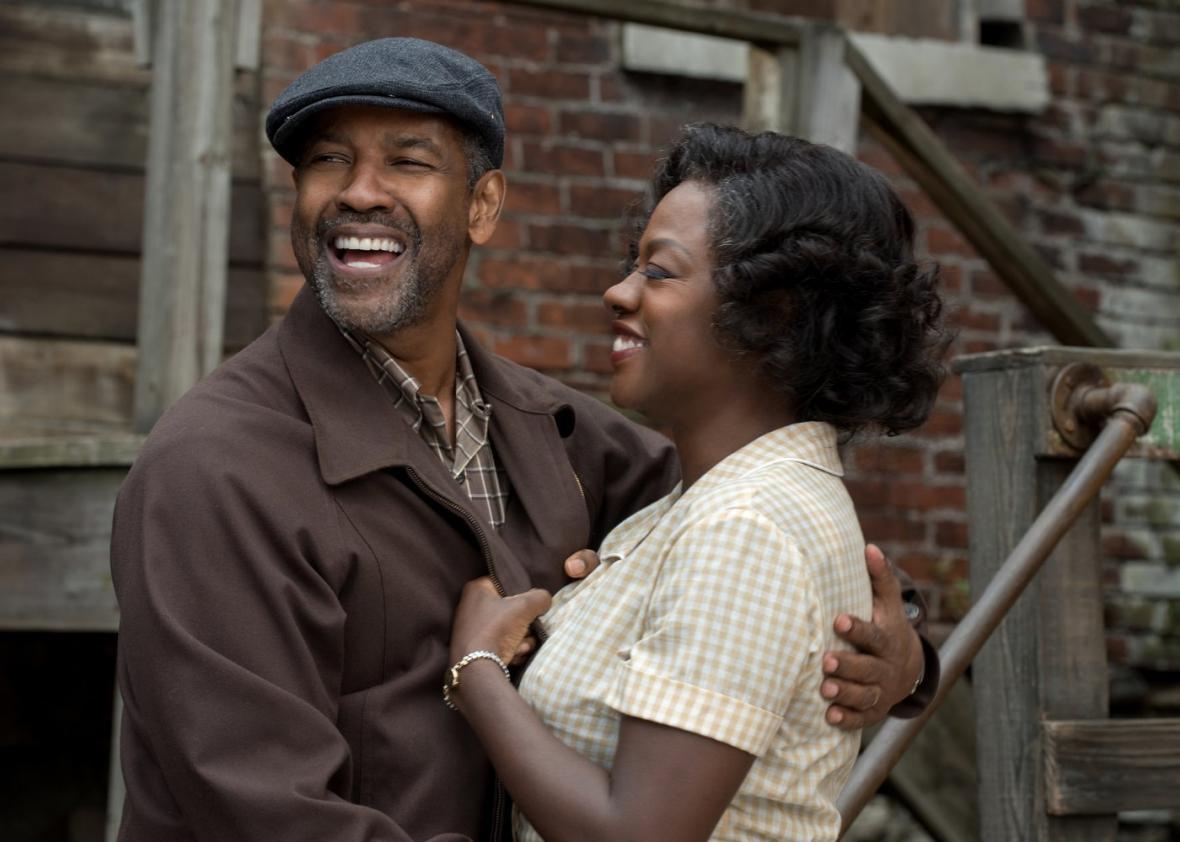After two years of all-white acting nominees and hardly any recognition for stories about people of color (save for Selma’s Best Picture nomination in 2015), the Academy of Motion Picture Arts and Sciences has done a complete 180, with the most nominations for black artists and filmmakers it’s ever had in a single year. The bigger feat, while not so surprising considering the Oscar predictions made in the months leading up to today, is that these nominations are spread across not one or two but several movies—including Moonlight, Fences, O.J.: Made in America, 13th, and I Am Not Your Negro. And most impressive of all is the fact that, aside from their shared racial demographics, these films tell very different kinds of stories. Finally, diversity at the Oscars isn’t just a numbers game—there’s diversity of storytelling, too.
Last year, I wrote about my disappointment that Ryan Coogler’s Creed, highly favored to land nominations in several of the main categories, including Best Picture, had failed to secure all but one nomination. (And for its white co-star, Sylvester Stallone, natch.) It wasn’t just that Creed was an exceptional film that took a dead franchise and invigorated it with a new, fresh perspective but that, by nominating it, the academy could’ve broken with tradition in only nominating films about black people that have to do with The Struggle. Unlike 12 Years a Slave, Precious, and other heavy Best Picture nominees, here was a movie in which the son of Apollo Creed, played by Michael B. Jordan, had to overcome personal trials and tribulations but didn’t have to carry the burden of an entire race on his back.
This year, the academy has begun to make up for all of those years of only honoring movies about slavery, the civil rights movement, or oppression more generally. Yes, 13th , O.J.: Made in America, and I Am Not Your Negro deal with the effects of all of those things. But the films nominated for Best Picture reflect a wide breadth of experiences and stories from and about black people. Moonlight is about a boy’s (and then a young man’s) quest to find romantic, maternal, and paternal love. Fences is about a towering patriarch’s grip upon the family that loves him in spite of his terrifying shortcomings. Hidden Figures is a light-hearted account of three previously unsung real-life black women who played crucial roles in America’s space race—and unlike in, say, The Help, their stories are never sidelined to focus on the white characters in their lives.
On top of all of that, Moonlight and Fences are also wholly original stories, inspired by very real people in the writers’ lives, yes—but not “based on a true story” like so many black films nominated and greenlighted in Hollywood tend to be. The acknowledgement that these narratives are worth telling, that black artists can be imaginative and interesting to audiences even without a historical reference point, is crucial. This is just year one in a post–#OscarsSoWhite world, and there is still a long way to go before Hollywood becomes more inclusive for all demographics. But what a way to start.
